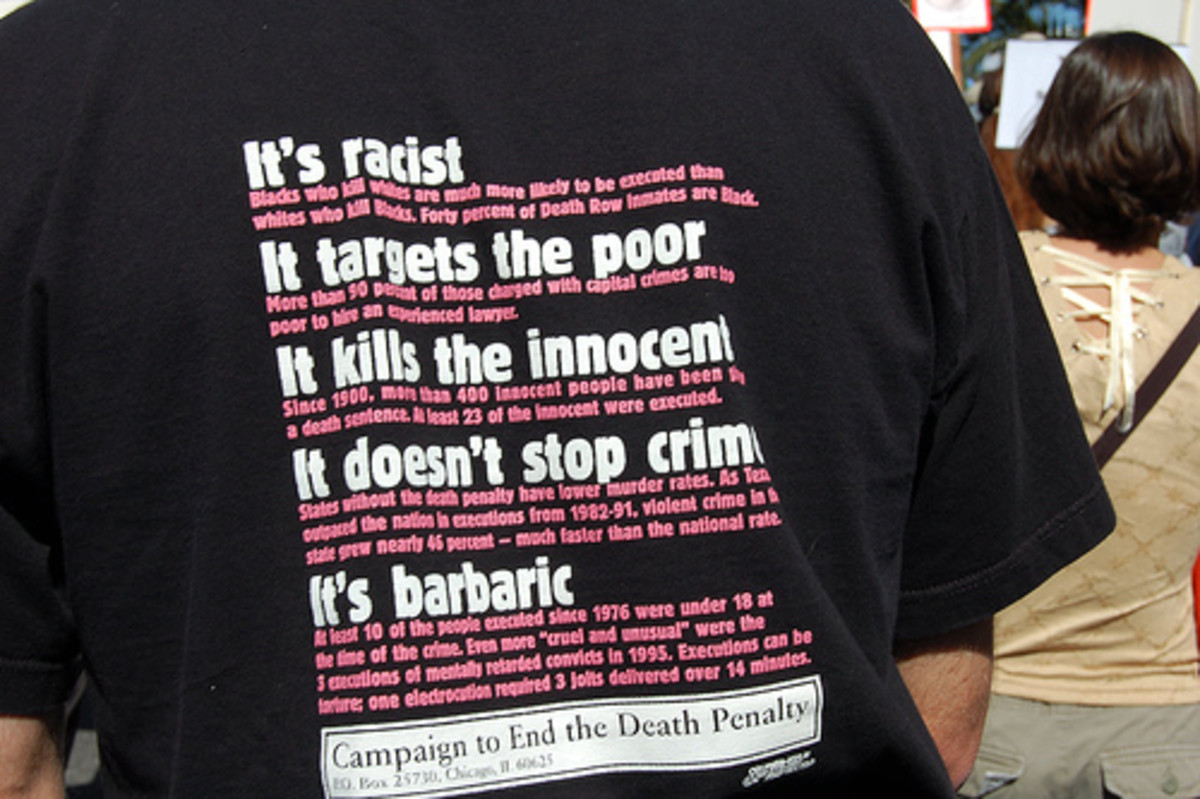Four Aspects of the U.S. Penal System that are Arguably Less Humane than the Death Penalty
It was an evening like any other, but it was also totally different. I was a professor for a junior college at the time and was teaching a prison composition class, something I did willfully once a week.
So many of the faculty where I worked would sneer and raise their noses skyward when presented with the prospect of teaching a class at the minimum security wing of the Oklahoma State Prison in McAlester, Oklahoma. They were above it. Teaching prisoners, ludicrous!
Not me, though. I jumped at the chance. See, divergent from the current tides of popular thought, I still believe the prison system can be used as a rehabilitative tool, a place where a fall from grace doesn’t have to equate to first marginalization and then eventual and permanent expulsion from society, that the primary goal of the penal system should be to help not to punish.
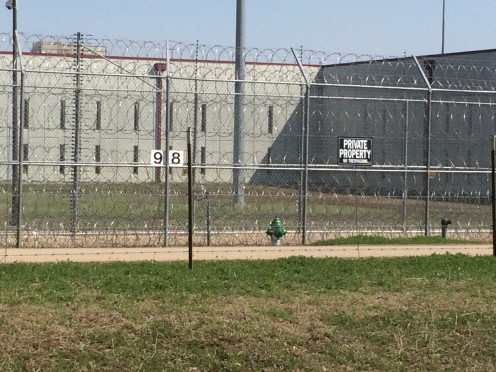
But I digress. It was an evening like any other at the Jackie Brannon minimum security wing of the Oklahoma State Prison, except that it was totally different. That’s the only way I know how to describe it. There was a thickness, a tension in the air that I hadn’t experienced up to that point.
“You know there’s gonna be a killin tonight,” one of my students said stoically. I nodded my head, acknowledging that I knew what he was talking about and moved on with the day’s lesson.
The student was referring to that night’s execution, and contrary to what many might believe, it wasn’t just the inmate population on edge: staff, guards, everyone I ran into that day who was associated with the prison was acting different. I was acting different. The mood of the whole place was gloomier, darker. The shadows on the walls were different. The air was different. The gusts of breeze were different.
Opinion:
Do you believe in the death penalty?
An excellent and well-rounded look at the death penalty
Logic and Humaninty Behind the Death Penalty?
Since I can remember, I have always come down the same way on the death penalty: I’m against it. All the reasons why, all the ins and outs I have concerning this belief system, that is not for today. Let me just say that I don’t like the idea of answering death for death, violence begetting more violence, ignorance begetting more ignorance and the whole endless cyclical effect of meanness.
Needless to say, put a petition in front of me to support the revocation of the death penalty and I’ll sign it, but beyond this I’m not much of an advocate. I’m not going to spend a cold night out holding a candlelight vigil for a baby rapist and murderer. I’m not going to shed tears when he’s dead. I’m not going to spend time and energy throwing together picket signs and marching on Capital Hill, at least not concerning the death penalty.
Quite frankly, I don’t see the same level of hypocrisy with living in a civilized country and still endorsing the death penalty as some do. I don’t find it to be a damnation of our society. Though there are many ideals and systems within the United States I am embarrassed by, the fact that we still choose to uphold the death penalty in some of our states isn’t a primary one.
First off, I don’t see the death penalty as entirely illogical. I don’t understand people that do. You kill somebody in a heinous and purposeful manner and then we kill you. Again, this isn’t how I’d vote to do things, but to say there isn’t a logic to this process, albeit one you might disagree with, is ridiculous. The logic is there. The logic is straightforward. In this system we try to follow a path of direct equivalency, an eye for an eye.
Have I confused you all yet with all my “flip-flopping”? I love the term flip-flopping. Yes, there is such a thing, but we’re so often too quick to label someone as flip-flopping when he or she simply has complex opinions. No, I’m not flip-flopping, nor am I on the fence. I’m simply saying that I am personally against the death penalty, but I don’t condemn nor even fail to understand those whose opinion falls on the other side of things.
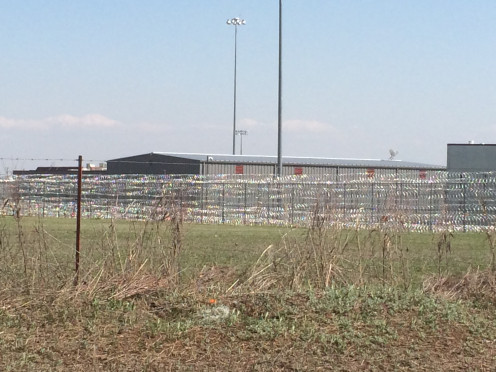
A less contemporary look at the punishment debate
And contrary to a common belief, I don’t think society as a whole takes the death penalty lightly. On this one particular topic I don’t feel the lion’s share of the population is misinformed. People know what is at stake. Like what I experienced that fateful evening teaching at Jackie Brannon, regardless of what side of the fence their opinion fell regarding the death penalty, I observed nobody doing cartwheels or jumping jacks to celebrate what would happen that night.
Everyone felt bad. What it boils down to is not that a large portion of our population takes joy in the “frying of asses” and another part of our population just really gets a thrill when our prisons have a “revolving door” so dangerous criminals are able to be out amongst the world with our families. It is hardly that simple.
What it boils down to is that the majority of people want justice and humanity, and one portion of the population believes that a death penalty can never accomplish this and another portion of the population believes that it sometimes can.
Notice I used the words “justice” and “humanity.” You might say, “But can there really be a justice or humanity in the government ordered murdering of people?” Again I go back to strands of logic, and again I say, Yes, there are strands of logic that would make the death penalty seem both just and humane.
I don’t personally agree with these strands of logic, but they do demonstrate a form of logic. For example, can it be reasoned that the murder of one human being for the heinous and malicious murder of another can constitute a form of justice? Yes it can. Can it be reasoned that the imprisonment of a human being for the rest of his or her natural life is less humane than just killing them? Yes it can. Can it be argued that for those harmed by the actions of a murderer, the execution of said person can be a form of humanity and closure in its own right? Yes it can.
By now you’re probably saying to yourself, For somebody against the death penalty, this guy sure has spent a lot of time defending its good graces. To which I reiterate, this article is not about disproving the perceived merits of the death penalty. If it were, I would be glad to go into the fine details that, for me at least, do just that.
The question I am asking here is, “Is the death penalty the most inhumane process within the prison system?” I certainly don’t think so. As ill-advised as the death penalty may be, there are a number of standardized processes within our penal system that have a far more wide-reaching and devastating affect than the death penalty. There are a number of commonly practiced methods within our institutions of incarceration that, unlike the death penalty, are entirely devoid of any semblance to logic.
You don’t believe me? Well, decide for yourself. Below are 4 of the many common practices of the United States Prison System that I believe less humane than the death penalty.
Prison Diet
The first common aspect of prison life that I would label as less humane than the death penalty is prison diet. I’m sure some of my readers are rolling their eyes by now. All I can say is before we cast judgment on the author, let’s think about this.
No, when most of us think of all the ills of prison, we probably don’t immediately jump to food—especially if we’ve never served time, but let me ask you this, “How important is proper nourishment in your day to day life?” If you’re anything like most people, it is probably a major driving force to your existence. It is such an integral part of your day-to-day life that you might not even think about it much. It’s just there and you take care of it.
Adding the caveat that there may still be a few prisons out there nourishing inmates properly, let’s look at the sorts of foods that prisoners can usually expect to be served. Prisons like to serve things that are loaded with sodium, processed with chemicals, loaded in fats, and lacking in vitamins. Why do they like these sorts of things? They’re cheap filler for the population with a long shelf life.
Not only are the foods commonly served bad for you, they often don’t meet the dietary guidelines set forth by the FDA. In fact, if a prisoner doesn’t have the means to supplement his or her diet by buying items from the prison store, mere survival of the prisoner over any extended period of time is questionable.
And what kinds of food can you get from the prison store? More sodium, fat, and preservative enriched garbage for the purpose of long term storage.
No, there may not be many overly thin prisoners, and this to the eyes of many means they are healthy. But the reality is that they are forced to eat loads of unhealthy, non-nourishing foods in order to get the appropriate nutrients to survive. While they are eating these excessive amounts of fodder, they are clogging arteries, damaging hearts, and contracting diseases like diabetes.
And you say to me, “Well, go cry me a river. Isn’t that what we’re all doing to ourselves?” To this I respond, that may well be true, but at least we have a choice. At least we can choose not to poison ourselves if we want to. The prisoner has no options.
On top of this, if you talk to most any prison guard and ask them what the biggest source of problems is in prisons today, the prison store inevitably comes up early in the discussion. The prison store will always be a source of problems for some, but when prisoners need it to survive, it becomes a problem source for everybody.
For example, let’s say I just want to do my time, not be a burden on anybody and get out and try to be a productive citizen again. Well, if I get all the nutrients I need from the cafeteria, I don’t need to go to the prison store. I don’t have to bother my family for money. I don’t have to worry about being assaulted or robbed for the items I buy.
If I choose to use the prison store, I am immediately thrown into a world of corruption and chaos that I might totally avoid if I could get the proper nourishment from daily meals.
By now you may be saying, “This is all interesting, but how does this constitute something less humane than the death penalty?” Let’s see. How could the deprivation of the proper nourishment for survival to all prisoners regardless of severity of crime committed constitute an inhumane act? How could pumping prisoners full of cancer causing additives and artery clogging preservatives while providing them no access to a safe alternative be less humane than say putting a gunman to death that unloaded a machine gun on a crowded theater?
If you take every prisoner on death row in the U.S. and add them up, you get a number that may be bigger than it should be, but that isn’t really all that large in the grand scheme of things. When we talk about the malnourishment of prisoners, we’re talking about a much bigger scale. We’re talking about most everybody that is incarcerated.
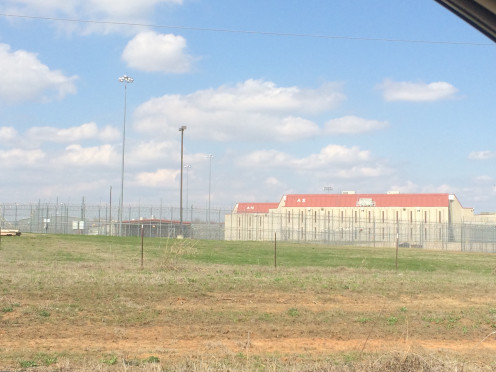
And I can already hear some of you complaining, “They did the crime. They don’t deserve to have caviar and lobster for dinner. They’re being punished for goodness sake!” Well, I’m not talking about foods like these. I’m just talking about proper nourishment: fresh carrots, beets, potatoes, apples. Foods that say, don’t have so much preservative that a single bite would kill a horse.
Not fancy food. Proper food. Everyone always forgets that the majority of these inmates are going to be out on the streets again, haven’t done anything so wrong in life that they don’t deserve that right. What do you think will make for a more reformed citizen: a person that has been tortured for 5 years or someone whose life has been treated with at least a modicum of value?
The sad truth is that an increasing percentage of our population doesn’t want our convicts reformed at all. They want them gone, out of sight forever, dead; they don’t care as long as they don’t ever have to see them. They complain about the money it takes to take proper care of them.
Well, what if I told you that feeding prisoners healthier food would almost definitely be cheaper. How can this be? Two words: preventative medicine. Healthcare in the prison system is socialized. Healthy people are exponentially cheaper to take care of. By simply providing prisoners healthier food, we reduce our medical costs to an extent that far outweighs the cost.
By doing this one thing, we improve the system, but we can do even better. Where do most prisons tend to be? There are a few in cities, but the vast majority tend to be in the middle of nowhere. And just the fact that the prison is there usually means the surrounding land is cheap and undeveloped.
Well, start agricultural programs in the prisons: fruits, vegetables, etc. Again, most prisoners aren’t violent. They are perfectly capable of working a job. With a little land, a prison might not just meet many of its own dietary needs, it may be able to sale some of its yield to offset farming costs.
I am against the death penalty, but that said, I can see that there is a logic to it, even a humanity. What is the logic in making our prisoners sick resulting in more expense to the taxpayer? What is the humanity in exposing thousands to illness and disease regardless of what they’ve done wrong?
There is no logic in the current prison dietary system. There is no humanity. It is a system of torture, (and no, I don’t think that’s too harsh a term) whose eradication would be relatively easy and result in a net benefit to all parties involved from the prisoner to the prison worker to the tax payer.
Cutting Rehabilitative Programs
What sort of demographic makes up the majority of the prison population? The impoverished, unskilled, uneducated, and ignorant. So it makes perfect sense to take this sort of population and hand them down long sentences, jam them all in close quarters, offer them no avenues for bettering themselves, and expect them to leave prison ten years later as productive citizens ready to enter a competitive job market, right?
The whole thing is preposterous, but with the exception of a few religious programs and the occasional GED course, there just isn’t much being done in the way of rehabilitation in our prison systems anymore. Isn’t rehabilitation supposed to be the cornerstone of our penal system?
Simply put, when you don’t have rehabilitative programs available to prisoners: drug rehab, anger management, college courses, vocational courses, GED programs, prison to work programs, etc., the already low chance that a prisoner rehabilitates him or herself is completely negated.
Regardless of what is offered, prisoners will learn during their stay in prison. At least when we have rehabilitative programs, some of that learning is positive. For whatever reason, society has geared itself to believe such programs are luxurious, costly, and unnecessary, when they most likely save us money in the long run.
What is better for the economy: educated and well adjusted prisoners released and able to immediately join the workforce as productive citizens, or ignorant, anger filled prisoners who have honed their criminal skills and are subsequently unleashed on society? Unless you own a prison, I think most of us would prefer the former.

Yes, even when such programs are offered, a goodly percentage of participants don’t succeed. Yes, programs like these cost money to run, but what is the alternative? Rehabilitative programs can and do work on occasion. If we didn’t spend all our time cutting and reinstating such programs and just invested in them, they would probably work a lot better.
And what of the humanity? What of the justice? What of the logic? If we’re just going to stick prisoners in jail to rot and further corrupt themselves, then release them knowing full well they are just going to hurt somebody and wind up right behind bars again, if where we could offer hope, we are just going to reinforce the pain, violence, and confusion they have always known, maybe we would be better off just to kill them.
It is entirely inhumane to not offer some manner of rehabilitation for our prisoners. Without the rehabilitation concept playing its role in the penal system, we might as well go back to the dungeons and torture chambers of medieval times. If rather than making prisoners better, we only endeavor to make them worse, there is no logic in ever releasing them.
Longer and Longer Sentences for Lesser and Lesser Crimes
Back in the 1980s many were critical of the way prisoners seemingly were getting out as soon as they were sentenced. The term “revolving door prison” was popularized during this time to describe this phenomenon.
As a result of public outrage, politicians got tough. Then they got tougher. Then they got tougher. Today, with a fear of looking weak by running on a platform of “reasonable sentencing,” politicians are still getting tougher. It has gotten to a point where even being convicted of crimes that are fairly petty in nature results in the total destruction of the perpetrator’s life.
Does this make sense? No! Maybe we did have a problem in the early 80s regarding violent criminals, but that has long since been taken care of. Now we’re just putting people we’re mad at away forever. What do I mean by “mad at”? I’m talking about perpetrators of crimes that really don’t put anyone’s life in jeopardy, but are just annoying.
For example, have you ever had your home robbed? I have. Just infuriating, but does such an act really ever justify a person spending his or her life in prison? When my apartment got robbed, my TV was stolen, my video game system, my electronic dartboard (I really liked that dartboard!). I was livid. Above all else, I was just so upset that a stranger would invade my private space like that.
Yet, as angry as I was, I couldn’t fathom someone having to lose 5 years of his or her life on account of it, much less a lifetime if it was a third strike. When people rob us, it is aggravating. When they continue to rob us, it is really aggravating, but as long as no violence is involved, why shouldn’t the prison be a revolving door of sorts for them.
Let me give an example. A first time offender is caught stealing a car. The offender has on his person no weapons and there is no perceived threat of violence. The offender gets a 12 month sentence and is out in 6 only to again get caught stealing a car. Let’s say the offender gets 2 years this time and is out in one only to again get caught stealing a car, while again demonstrating no threat of violence. This time let’s say the offender gets 3 years, and as a result of his recidivism, he serves the full 3 years this time. And let’s say for the remainder of this offender’s life he continues to steal cars while demonstrating no threat of violence, and as a result, he continues to serve 3 year sentences. Is this fair?
Popular opinion would say no. Popular opinion would say by the third offence the perpetrator should be looking at 10 to 15 years jail time minimum. Why? Because society is mad at this person. It’s not about justice. I fail to see how somebody’s stealing of “stuff” can ever constitute a lifetime in prison, especially when we’re talking about robbery on this level.

Look at it this way: the corporate criminals of the world have totally destroyed life as we know it over the last few decades. They have caused incalculable pain and suffering that has resulting in the loss of quality of life and even the probable early demise of thousands.
Yet the majority of these corporate criminals have done no prison time, primarily because their heinous acts of indecency aren’t often technically illegal. Then you have another large portion of these types that simply never get caught because such crimes can readily be gotten away with.
And then you have a tiny percentage who actually take the fall and go to jail for a few months. For the pain and suffering of thousands they see the inside of a minimum security dorm for a few months. Really? And folks think this is fair while the nonviolent, petty criminal goes away forever because he or she made us mad by stealing some of our stuff on three or more occasions.
Not our livelihood, not our retirement, not our life’s effort, no, the people who do this are released in no time. I’m talking about the people who steal our dartboards, our stereos, our jewelry: these are the people we lock away forever.
Improper Placement of the Mentally Ill
Again, let’s transport ourselves back to the early 80’s. It was a time when the mentally ill were being taken care of fairly well. There was a decently hearty system of public institutions to take care of the mentally infirm. Then, for some reason beyond my understanding, the entire mental healthcare system was dismantled in favor of just giving the mentally ill a handful of pills, telling them to take them on occasion, then sending them out to the general public and assuming the problem would somehow magically take care of itself.
So did it work? Where are our mentally ill today? Some of them have families that have the resources to take care of them. Others are functional enough to get by, usually relying at least some on the kindness of strangers. Many are homeless and populate the streets of our cities and towns. And an overwhelming and increasing number populate our prisons.
Are the mentally ill well suited for a conventional prison? Absolutely not. It is a failure on every level. It is dangerous for the mentally healthy prisoners, it is dangerous for the mentally ill prisoners, and it is dangerous for the guards and staff not specifically trained to deal with mental illness, not to mention that it is just wrong and immoral to place the mentally ill in a system that is geared for a population capable of responding to conventional systems of instruction.
Here’s a better idea. We could have kept the mental health system we had, and here’s a theme that has been echoed throughout this article, we could have used this system as “preventative medicine.”
In the past the mental health system was used to identify and treat the mentally ill, actually treat them through thorough psychological therapy, rehabilitative work, and proper medication—a system that actually often worked.
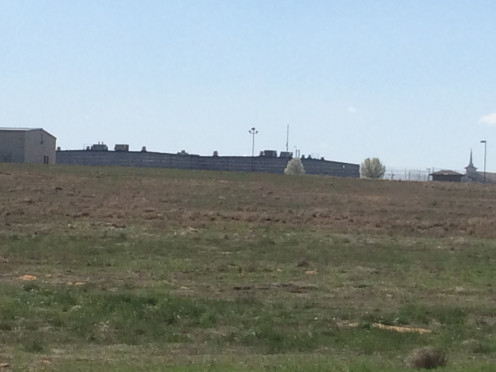
Today problems go undiagnosed until there is a significant episode. The significant episode usually results in the mentally ill person going straight to prison, but if it doesn’t, it results in the mentally ill person being sent home with a lot of pills and little to no therapeutic direction—a system that absolutely never works, not even by accident.
Again, echoing an earlier theme of the article, this is another grotesquely inhumane, unjustifiable, and illogical aspect in the U.S. correctional system. And again, I believe this practice to be far more lacking in moral scruple and cognitive reason than the death penalty.
And again, it doesn’t make financial sense for any of the parties involved. When we help the mentally ill before things escalate, it is cheaper than housing prisoners. Those of our mentally ill who do require confinement have no business being confined with the mentally healthy.
They should be in their own institutions with staff that is properly trained to deal with and help them rehabilitate from their illnesses. Same theme, different problem: does it make sense for a mentally ill offender to serve 10 years in a conventional prison and receive no help appropriate to his or her illness before being released on society, or does it make more sense for a mentally ill person to spend 5 years in a mental institution equipped to deal with his or her problems and the remainder of his or her life with occasional psychological checkups?
Opinion:
Do you believe there is anything less humane in the U.S. correctional system than the death penalty?
Conclusion:
There is perhaps nothing more significant, more final, more disturbing from the human perspective than the murder of a perfectly healthy human being. Regardless of what said person has done wrong, it is a process that I can’t see my way around supporting.
Yet when one endeavors to measure the cumulative impact of the death penalty and analyze the reasoning behind such an ideal, in comparison to countless other protocol within the U.S. correctional system, the death penalty does not come out as barbaric in the overall breadth of its destruction as many other practices.
So, if you come to believe the above statement, what is its significance? To me, it isn’t that working to repeal the death penalty becomes a trivial pursuit. It is that it shouldn’t be the only pursuit, and as of the present, maybe it shouldn’t even be the main pursuit.
If we work on fixing the problems outlined in the article and other totally illogical practices not mentioned here that are of the same ilk, first, then far, far, far, more lives would be saved in the long run than simply repealing the death penalty.
Then after we have a hold on these injustices, these entirely inexplicable injustices, then maybe it becomes time for the abolition of the death penalty to move to the forefront.







